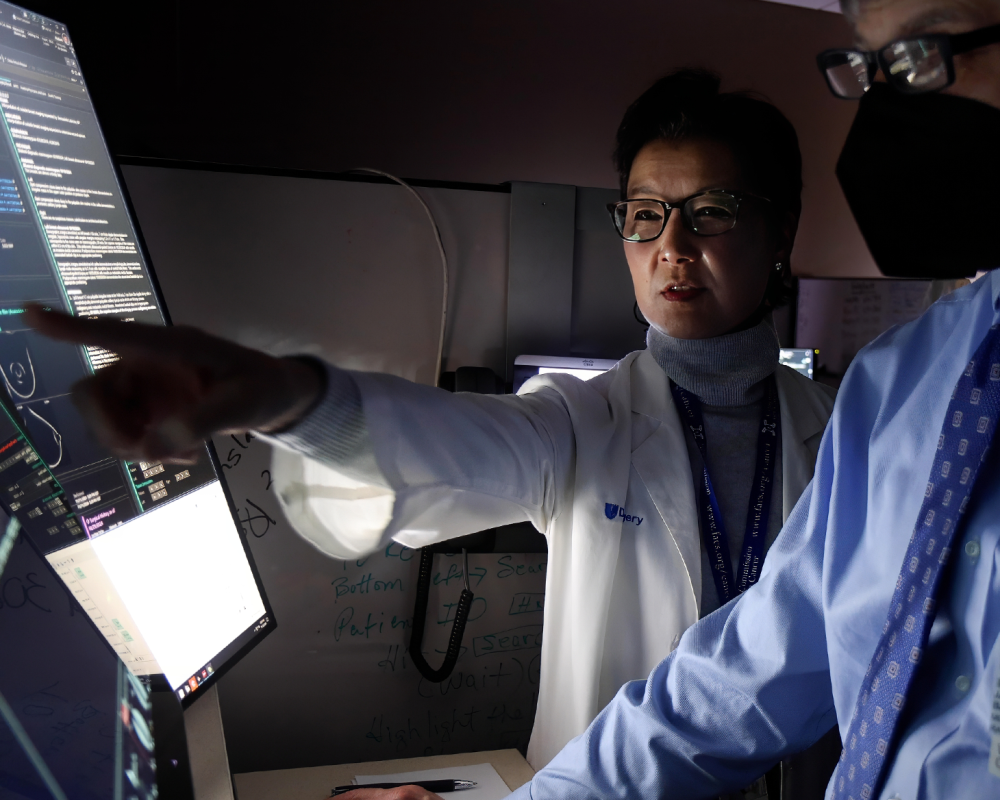Stronger Than Rare: Battling Adversity, Fueling Genetic Discovery
Life constantly throws twists and turns at us. These adversities, big and small, challenge us in new ways and force us to decide who we want to be: the person who gives up and walks away or the person who faces that adversity head on and figures out how to fight through it.
Why Everyone Should Care About Women’s Health
Shelley Hwang was a panelist on the Time100 Leadership Forum. She discussed issues like rollbacks to the Affordable Care Act, women's health and more. Dr. Hwang is on the Time100 Health 2025 list.
From Data to Decisions: A Model for Returning Individual Results to Research Participants
Returning results to clinical study participants has not historically been the norm, but the paradigm is shifting, with return of results becoming not only a scientific responsibility but also an ethical imperative.
Hwang named on the TIME100 Health 2025 List for Cancer Innovators
Contribution: Surgical oncologist at Duke Cancer Institute, advocating for less invasive treatments for early-stage breast cancer, challenging traditional approaches to surgery and radiation.
Advancing Prenatal, Postnatal Care Through Early Genetic Insight
Pregnancy is exciting and terrifying. Expectant mothers picture their lives when they are finally able to hold the baby growing inside of them in their own arms. But many also worry about making sure their babies are happy and healthy. Some moms-to-be may choose to have genetic testing done during pregnancy to identify potential genetic disorders or chromosomal abnormalities.
Living Well at 99: Lois Fenoglio Shares Her DNA for Health Research
A lot of life happens in 99 years. Lois Jean Fenoglio is hoping that some of her 99 years (and counting!) of life experiences can help researchers better understand connections between DNA and health.
Fenoglio is participating in the OneDukeGen Genomic Sequencing Study and Biorepository. By providing a blood sample, Fenoglio’s DNA and other material will be analyzed and used in research related to a variety of diseases and conditions.
Project Baseline Study Watch Resting Heart Rate Correlates with ECG
Resting heart rate measured with an investigational watch worn during the Project Baseline Health Study correlated strongly with electrocardiography (ECG), considered the gold standard.
CTSI Welcomes Clinical Research Equity Scholars in Partnership with Durham Tech
A unique collaboration launched four years ago between CTSI and Durham Technical Community College continues to thrive and recently welcomed the latest cohort of the Clinical Research Equity Scholars Program.
New Grant to Address Hidden Hypoxemia
Pulse oximetry has long been trusted as a key diagnostic tool. However, for patients with darker skin tones, this technology may not be accurate. A new grant aims to fix that.








